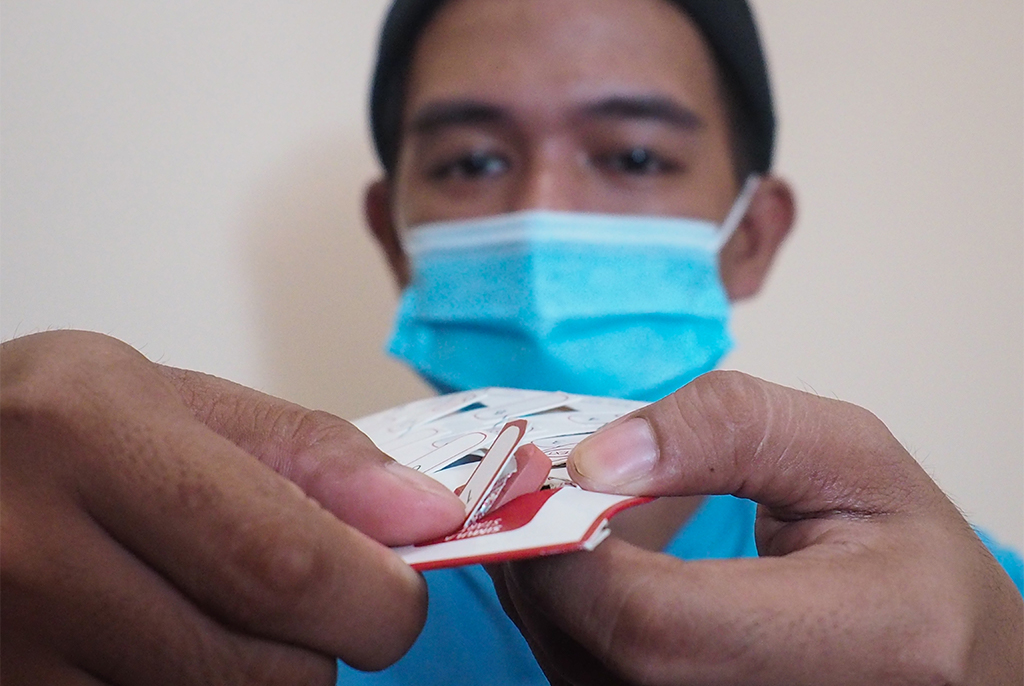Since 2018, KNCV has rolled-out several Digital Adherence Technology (DAT) demonstration projects in countries such as the Philippines and Tanzania. These TB REACH projects are the predecessor of the ASCENT project and were funded by the Stop TB Partnership. Goal of these demonstration projects was to assess the feasibility, acceptability by patients and health care providers, and the accuracy of digital adherence technologies.
In addition, the project assessed the overall impact of DATs on treatment outcomes and general adherence behavior. As part of the project, KNCV will determine the necessary adaptations needed to make DATs suitable for a variety of contexts, including how to incorporate patient-centered mechanisms, and steps to scale-up and sustain these innovative approaches.
TB REACH Tanzania
The TB REACH 99DOTS technology was implemented in the Geita region of Tanzania as a demonstration project with the aim to
- implement 99DOTS (medication sleeve) adherence technology through NTLP service delivery and current work processes, systems and supply chains;
- build capacity within the NTLP regarding adherence technologies and;
- assess practicalities, scalability, and impact on treatment outcomes of monitored self-administration and dose history informed differentiated care.
Since the start, the project provided critical learnings that have informed global adaptations to the Digital Adherence Technology (DAT) platform Everwell Hub, reduced patients lost to follow up by 5% (compared with control facilities during the period of implementation), secured NTP and partner buy-in and have set the stage for the introduction of other types of digital adherence technologies – such as smart pill boxes – in Tanzania.
Read more in the project summary and the patient story of Angelito from the Philippines.
TB REACH The Philippines
The TB REACH project on treatment adherence in the Philippines aimed to:
- Implement 99DOTS adherence technology through National TB Program (NTP) accredited service delivery and supply chains, and
- Assess practicalities, scalability and impact on treatment outcomes of monitored self-administration and dose history informed differentiated care.
In 2019 we had the following successes:
- The treatment success rate was 79% (213/269) with 82 patients still undergoing treatment
- We secured buy-in of NTP (national, regional, local) and other stakeholders (e.g. WHO, private and public sectors)
- DAT is now included in the revised NTP Manual of Procedures
- We identified and proposed modifications needed in 99DOTS application and dashboard for enhancements in the ASCENT project
- Participatory localization/customization of DAT and establishment of differentiation pathway of care – by regional and local stakeholders
Read more in the project summary.
